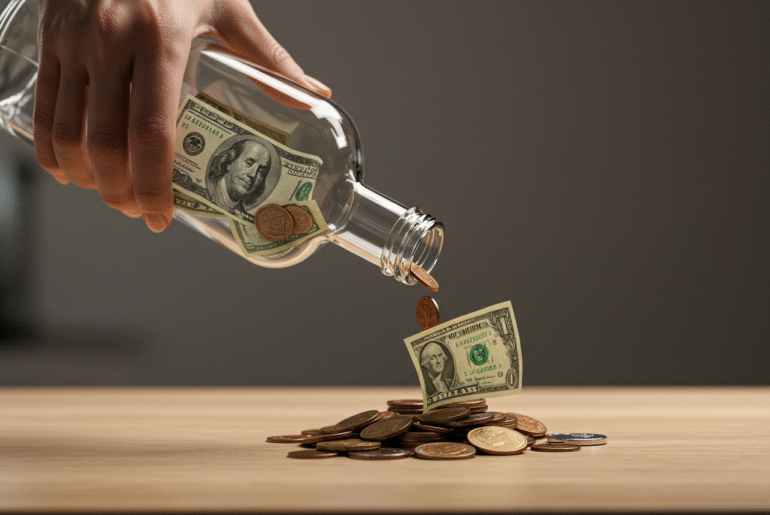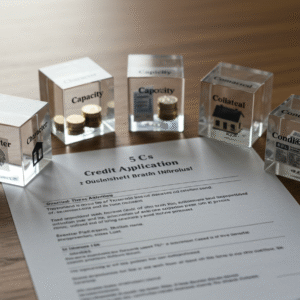This article may contain references to products or services from one or more of our advertisers or partners. We may receive compensation when you click on links to those products or services. Nonetheless, our opinions are our own.
The information presented in this article is accurate to the best of our knowledge at the time of publication. However, information is subject to change, and no guarantees are made about the continued accuracy or completeness of this content after its publication date.
- Highlights
- Introduction
- Calculating The Financial Cost Of Alcohol Consumption In The U.S.
- Average Monthly And Yearly Spending On Alcohol
- Factors That Influence Individual Alcohol Expenses
- Hidden Costs Associated With Drinking Alcohol
- Health-Related Expenses From Alcohol Use
- Impact On Work Productivity And Career Earnings
- Non-Financial Benefits That Translate To Savings
- Improved Physical And Mental Health Outcomes
- Enhanced Social Life And Relationships
- Conclusion
- Frequently Asked Questions
- How can I keep track of my spending on drinking and see how much I save?
- What are some good ways to cut down or stop drinking alcohol?
- Are there ways to meet friends and have fun without drinking?
- How soon will I start to see monetary benefits after quitting alcohol?
- Will my health insurance costs decrease if I stop drinking alcohol?
- Recommended Reads
Highlights
- Drinking can cost money and harm health in ways that may not be immediately obvious, affecting well-being and finances.
- Stopping or reducing alcohol intake can save hundreds to thousands of dollars yearly.
- Quitting alcohol benefits health by lowering blood pressure, improving liver function, and enhancing sleep quality.
- Reducing drinking can improve work productivity and focus, potentially increasing earnings by avoiding hangovers.
- Avoiding alcohol supports better social life, relationships, and mental well-being, contributing to positive life changes.
Introduction
Have you considered how drinking affects both finances and health? Alcohol consumption impacts the body and mind while gradually reducing available money. Over time, drinking may lead to weight gain, high blood pressure, or withdrawal symptoms if stopped suddenly. Many people experience improved health by reducing or stopping alcohol intake. Cutting back on drinking can enhance daily well-being. This content explains how drinking influences spending and health, including effects on blood pressure. It also provides simple tips to encourage healthier drinking choices.
Voted "Best Overall Budgeting App" by Forbes and WSJ
Monarch Money helps you budget, track spending, set goals, and plan your financial future—all in one app.
Get 50% OFF your first year with code MONARCHVIP
Calculating The Financial Cost Of Alcohol Consumption In The U.S.
The cost of alcoholic beverages in the U.S. is only part of the total expense. Many individuals spend more on drinks annually than initially apparent. From wine glasses to pints, costs add up quickly, impacting budgets significantly. Spending patterns change based on drinking habits, social outings, and alcohol content (ABV).
Average Monthly And Yearly Spending On Alcohol
Costs depend on the quantity and frequency of drinking. According to the CDC, one drink equals 5 ounces of wine or 12 ounces of beer. The following table shows approximate spending for different drinking levels:
Average Alcohol Spending
| Type of Consumption | Average Monthly Cost | Average Yearly Cost |
|---|---|---|
| Light drinking (4 glasses/week) | $60–$80 | $720–$960 |
| Moderate drinking (10 pints/month) | $120–$180 | $1,440–$2,160 |
| Heavy drinking (25 drinks/week) | $450–$600 | $5,400–$7,200 |
Even occasional drinkers spend several hundred dollars annually. Higher consumption raises costs substantially. Reducing drinking leads to greater savings over time.
Factors That Influence Individual Alcohol Expenses
Spending on alcoholic beverages varies by person due to drink type and consumption frequency.
- How often you drink: Frequent drinking leads to higher monthly or yearly expenses compared to occasional drinking.
- ABV content: Drinks with higher alcohol content, such as craft cocktails, usually cost more per serving.
- Social events: Parties and gatherings can increase alcohol spending.
- Drinking problems: Frequent or problematic drinking may cause increased spending and financial strain.
Understanding these factors can help identify areas to cut costs and improve budgeting by reducing alcohol consumption.
Purchasing drinks is only part of alcohol’s financial impact. Excessive drinking brings additional hidden costs that accumulate over time. Medical care for withdrawal, illness, or addiction can be expensive. Alcohol-related health damage may require long-term treatment and negatively affect quality of life.
Frequent drinking contributes to health problems that increase medical costs. Alcohol weakens the immune system, raises blood pressure, and damages organs such as the liver and heart. Sleep disturbances and mental health issues can arise, further increasing healthcare expenses. Reducing alcohol intake lowers health risks and associated costs, freeing funds for other needs.
Impact On Work Productivity And Career Earnings
Alcohol consumption affects job performance by impairing focus and productivity.
- Reduced productivity: Hangovers impair concentration and work output.
- Career earnings: Poor work quality and focus may limit income growth over time.
- Health risks: Elevated blood pressure and fatigue can reduce work efficiency.
Cutting back on alcohol improves job performance and health, supporting career advancement and higher earnings.
Non-Financial Benefits That Translate To Savings
Drinking less offers benefits beyond money saved. Improved clarity, better health, and fewer medical visits reduce expenses. Reduced need for therapy or support related to alcohol problems can also lower costs. Better mood and stronger relationships contribute to improved quality of life and lasting positive changes.
Improved Physical And Mental Health Outcomes
Lower alcohol consumption leads to weight loss, better liver health, and reduced risk of dependence. Stress management and clearer thinking improve. Many experience better sleep and fewer cravings, supporting long-term recovery and well-being.
Quitting or reducing alcohol strengthens social interactions and family bonds.
- Family benefits: Reduced conflicts and closer relationships at home.
- Social events: Nonalcoholic options support inclusive gatherings and healthier choices.
- Avoiding substance misuse: Healthy social activities decrease concerns about excessive drinking.
These improvements enhance social life and personal connections.
Conclusion
Stopping or reducing drinking can save significant money and improve health and work performance. Tracking spending reveals hidden costs beyond the price of drinks, including health and productivity impacts. Savings extend to physical and mental well-being and stronger relationships. Every step toward drinking less supports better life quality and finances. Support is available through professionals to assist in this process.
Frequently Asked Questions
How can I keep track of my spending on drinking and see how much I save?
Record each drink and expense daily. Use apps or tools to monitor spending, and review bank statements monthly to assess savings as drinking habits change.
What are some good ways to cut down or stop drinking alcohol?
Replace cravings with exercise or nonalcoholic drinks. Consult healthcare providers for support with withdrawal. Support groups and therapy can assist in quitting and developing healthier habits.
Are there ways to meet friends and have fun without drinking?
Yes. Visit mocktail bars, coffee shops, or participate in group sports. Events like Dry January offer social options without alcohol, fostering inclusive experiences.
How soon will I start to see monetary benefits after quitting alcohol?
Savings typically appear within the first month after reducing or stopping drinking, increasing as spending decreases over time.
Will my health insurance costs decrease if I stop drinking alcohol?
Health insurance may become less expensive if health improves, such as lower blood pressure. Regular medical checkups help track these changes and support overall health.

Reviewed and edited by Albert Fang.
See a typo or want to suggest an edit/revision to the content? Use the contact us form to provide feedback.
At FangWallet, we value editorial integrity and open collaboration in curating quality content for readers to enjoy. Much appreciated for the assist.
Did you like our article and find it insightful? We encourage sharing the article link with family and friends to benefit as well - better yet, sharing on social media. Thank you for the support! 🍉
Article Title: How Much Could You Save by Eliminating Alcohol?
https://fangwallet.com/2025/06/07/how-much-could-you-save-by-eliminating-alcohol/The FangWallet Promise
FangWallet is an editorially independent resource - founded on breaking down challenging financial concepts for anyone to understand since 2014. While we adhere to editorial integrity, note that this post may contain references to products from our partners.
The FangWallet promise is always to have your best interest in mind and be transparent and honest about the financial picture.
Become an Insider

Subscribe to get a free daily budget planner printable to help get your money on track!
Make passive money the right way. No spam.
Editorial Disclaimer: The editorial content on this page is not provided by any of the companies mentioned. The opinions expressed here are the author's alone.
The content of this website is for informational purposes only and does not represent investment advice, or an offer or solicitation to buy or sell any security, investment, or product. Investors are encouraged to do their own due diligence, and, if necessary, consult professional advising before making any investment decisions. Investing involves a high degree of risk, and financial losses may occur including the potential loss of principal.
Source Citation References:
+ Inspo
There are no additional citations or references to note for this article at this time.












































